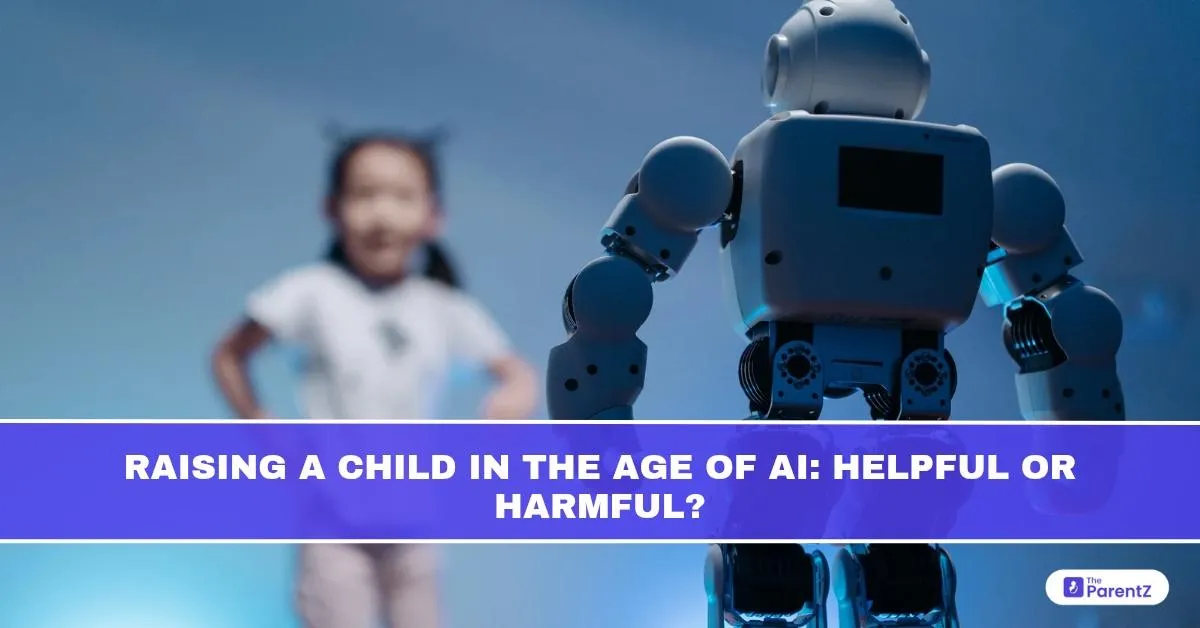Parenting today feels completely different from what our parents experienced. Back then, the biggest worry was probably too much TV time. Now? We're dealing with AI tutors, smart toys that talk back, and kids who can ask Alexa anything before they can tie their shoes.
As parents in 2025, we're walking into uncharted territory. AI is everywhere in our kids' lives, whether we planned it or not. The question isn't whether AI will impact our children. It's how we can make sure that the impact is positive.
The Good Side of AI in Parenting
Let's start with the positives because there are quite a few. AI can actually be an incredible parenting ally when used thoughtfully.
- Personalized Learning That Actually Works: Remember struggling with math homework and wishing you had a patient tutor? AI-powered educational apps can now adapt to your child's learning pace. If your 8-year-old is struggling with fractions, the AI notices and provides extra practice. If they're racing ahead in reading, it offers more challenging books. It's like having a personal teacher who never gets tired or frustrated.
- Safety and Peace of Mind: Smart home devices can help keep our kids safe. GPS trackers help us know where our teens are. AI-powered parental controls can filter inappropriate content better than ever before. For working parents, this technology can provide that extra layer of security we desperately need.
- Support for Parents: This is where tools like TheParentZ Baby Growth & Health Tracker come in. Parenting advice used to come from your mom, mother-in-law, or that one friend who seemed to have it all figured out. Now, AI parenting partners like Misha can provide evidence-based guidance at 3 AM when your toddler won't sleep, or when you're second-guessing every decision you make.
- Accessibility for All Kids: AI is breaking down barriers for children with special needs. Speech recognition helps kids with communication challenges. AI-powered apps can assist children with autism in understanding social cues. This technology is creating opportunities that simply didn't exist before.
The Concerning Side We Can't Ignore
But let's not sugarcoat it. There are real concerns that keep parents up at night.
- Screen Time on Steroids: AI makes screens incredibly engaging. When an app learns exactly what keeps your child hooked, it becomes much harder to pull them away. We're seeing kids spend hours interacting with AI characters, sometimes preferring them to real human interaction.
- Privacy Worries: AI learns from data, often our children's data. Every question they ask, every game they play, and every mistake they make gets recorded somewhere. As parents, we have to wonder: who has access to this information about our kids?
- Social Skills Taking a Hit: When kids can get instant answers from AI without learning to ask questions properly, research independently, or deal with uncertainty, are we robbing them of crucial life skills? There's something valuable about the struggle of figuring things out.
- The Empathy Question: AI can simulate understanding, but it doesn't actually feel. When children form emotional bonds with AI companions, they might struggle to understand that real relationships require give and take, patience, and genuine care.
Finding the Balance in Modern Parenting
So, how do we navigate this new world? The answer isn't to ban AI completely or embrace it without limits. It's about finding balance.
- Set Clear Boundaries Early: Just like we teach kids to look both ways before crossing the street, we need to teach them how to interact safely with AI. This means having conversations about what AI is, how it works, and why human relationships are different and special.
- Stay Involved: Don't let AI replace your involvement in your child's learning and development. Use it as a tool, not a substitute. If your child is using an AI tutor, check in on their progress. Ask questions about what they're learning.
- Teach Critical Thinking: Help your children understand that AI can make mistakes. Encourage them to verify information and think critically about what they're told. This skill will serve them well throughout their lives.
- Prioritize Human Connection: Make sure your family has plenty of AI-free time. Family dinners, outdoor activities, and face-to-face conversations shouldn't compete with algorithms for your child's attention.
Conclusion
Parenting has always been about adapting to new challenges. Our parents worried about video games. Their parents worried about television. Now we're worrying about AI, and that's okay.
What matters is that we're thinking about it, talking about it, and making intentional choices. We don't have to figure this out alone. Whether it's connecting with other parents, seeking guidance from tools like TheParentZ, or simply trusting our instincts, we have resources our parents never had.
AI isn't inherently good or bad for our children. Like any tool, its impact depends on how we use it. By staying informed, involved, and intentional, we can help our kids benefit from AI's advantages while protecting them from its risks.
The goal isn't to raise children who avoid technology but to raise children who can think critically about it, use it wisely, and never lose sight of what makes us human. In the end, that's what good parenting has always been about, regardless of the era.





Be the first one to comment on this story.